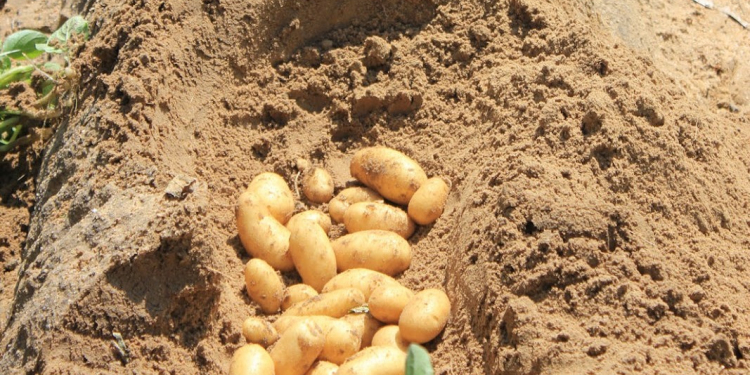Europatat is part of an international consortium involved in the ADAPT (“ Accelerated Development of Multiple Stress Tolerant Potato Varieties ”) research project, which aims to develop new strategies to make potatoes adapt to the challenging growing conditions of the future . The project started in July 2020 and will be carried out over the next three years with a total budget of € 5 million funded by the European Union’s Horizon 2020 research and innovation program under grant agreement No GA 2020 862 -858.

The ADAPT consortium, led by The Faculty of Life Sciences of the University of Vienna, has successfully launched the project titled “Accelerated development of multiple-stress tolerant potato”, which aims at developing new strategies to make potatoes fit for the challenging growth conditions of the future. The ADAPT project will take place over the next four years, with a total budget of EUR5m from the EU Horizon 2020 program.
The project is progressing well following initial plans and two stress tests are currently being carried out, each consisting of 54 potato varieties that have been selected based on previous projects for their differential sensitivity to heat and drought stress. .
The Dutch company HZPC (which is a member of Europatat) is conducting field tests at an established site in Spain, near Valencia. This area is characterized by high temperatures also during the night, which is a particularly important point that is strongly affecting the tuberization process of the plants and, therefore, the potato yield. At this location, you can take a closer look at the effect of the combined stresses: heat and drought.

Desirée plants grown under control conditions were at the beginning of tuberization subjected to single stresses (D, H, W) and combined.
The range of morphophysiological traits was quantified daily using the PlantScreen ™ phenotyping system followed by successive tissue samples for “omic” analysis.
At the same time, the Dutch variety developer Meijer (who is also a member of Europatat) will study the performance of the same varieties under drought conditions in a continental climate environment. This trial will be located in Zealand, the Netherlands, and will be planted at the end of April.
These results will then be supplemented with detailed physiological analyzes under controlled environmental conditions in greenhouse studies. These are led by the Universities of Erlangen (DE) and Utrecht (NL) and aim to characterize genetic variation in a subset of different potato cultivars (up to 30) in response to heat (H), drought (D ) and waterlogging. (W) and a combination thereof. Therefore, at the end of last year a first pilot experiment was carried out on the PlantScreenTM phenotyping platform at the Research Center of the high-tech company Photon Systems Instruments (PSI) in Drásov (CZ).
Here, the Desirée variety was used as a reference culture to establish stress conditions and obtain a complete picture of the morphophysiological changes, Initial results show that heat, as well as the combination of heat and drought, had a clear negative impact on plant performance and clearly reduced tuber growth. The duration of the waterlogging was too severe, as most of the plants did not recover from the treatment. Therefore, subsequent experiments will use a shorter sublethal waterlogging treatment.

Top view color segmented RGB images of Desirée plants at baseline (day 0), progression (day 7, day 14) and recovery phase (day 21 and day 28) of the stress response.
Samples taken during the course of the Desirée pilot experiment are being analyzed for biochemical and molecular markers by different members of the ADAPT consortium. Friedrich-Alexander-Universität Erlangen-Nürnberg (FAU) is screening for genetic variation with different potato cultivars for heat, Wageningen University and Research (WUR) for drought and Utrecht University for waterlogging.








